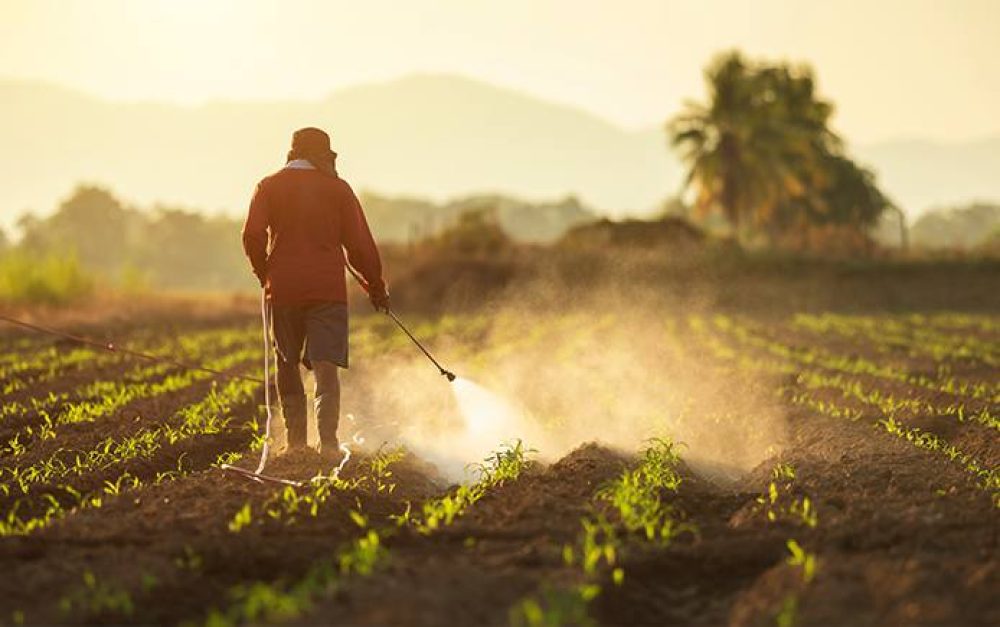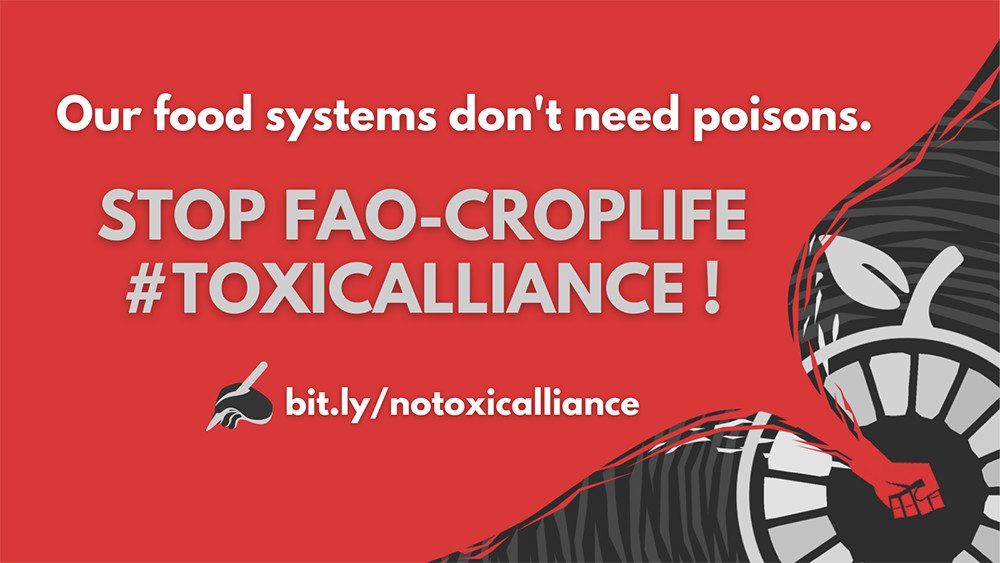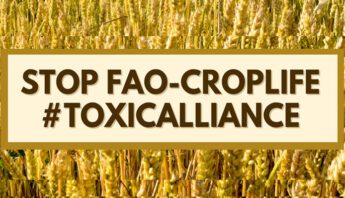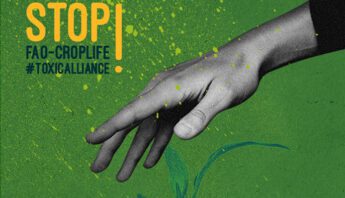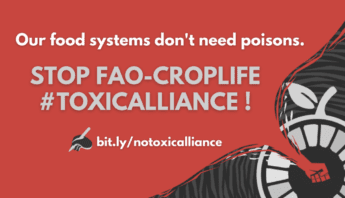Late last month, peasant movements, Indigenous peoples and civil society organizations (CSOs) sent two strong messages to those in charge of the UN Food Systems Summit (UN FSS) at a Pre-Summit event in Rome.
Note: This blog is co-authored by Simone Adler (PAN North America) and Ilang-Ilang Quijano (PAN Asia Pacific). Please see Ilang-Ilang’s photo and bio below.
Late last month, peasant movements, Indigenous peoples and civil society organizations (CSOs) sent two strong messages to those in charge of the UN Food Systems Summit (UN FSS) at a Pre-Summit event in Rome: A corporate-driven approach will not address the crises in our food systems. And neither will an alliance with CropLife International, the global trade association of the largest agrichemical, pesticide and seed companies.
There is no hiding that Big Ag corporations are driven by bigger market gains and product sales, with dire impacts for people and the planet resulting. Each year, 385 million farmers and farmworkers suffer from acute pesticide poisoning, pesticides are a major driver of the unprecedented collapse of insect populations and biodiversity loss, and these petroleum-derived products contribute to climate change.
While that may seem devastating enough, industry’s clear efforts to increase access to power in international policy arenas are also undermining democratic governance processes, and imperil the future of food systems worldwide.
FAO proposes a #ToxicAlliance
In October 2020, the Food and Agriculture Organization (FAO) announced their intention to create a formal alliance with CropLife International. CropLife is made up of seven regional associations (America, Canada, Latin America, Brazil, Europe, Asia, Africa & the Middle East), with well over three hundred country-level associations and Big Ag member corporations.
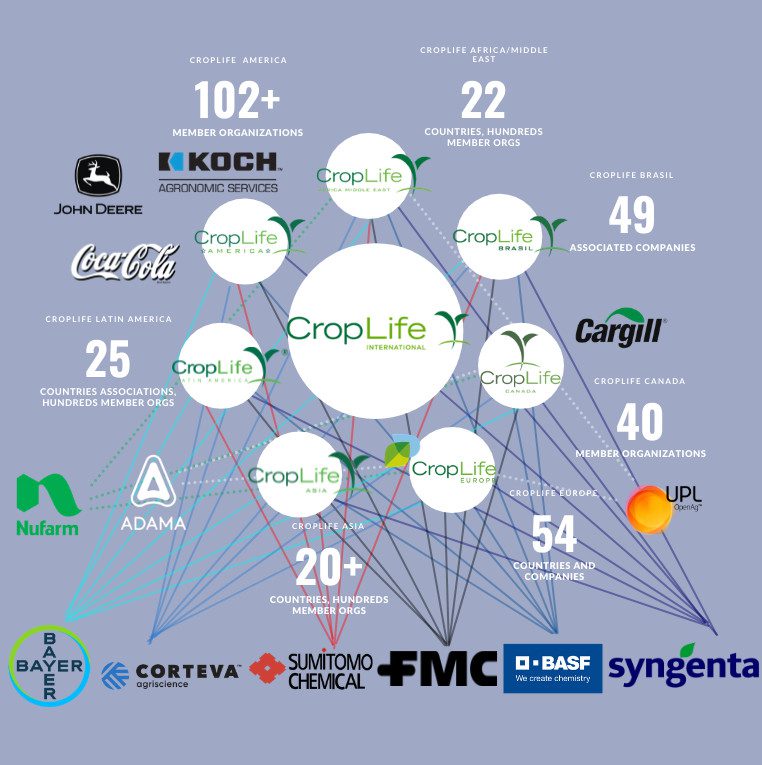
Social movements immediately pushed back with demands that FAO Director General Dongyu Qu not enter this #ToxicAlliance with the world’s leading manufacturers of harmful and unsustainable agrichemical technologies, who all have long track records of poisoning farmers, workers, food, air and water — and undermining food sovereignty.
So far, Director General Qu has ignored mounting expressions of concern about the alliance with CropLife. Similarly, the UN plowed forward in the Summit with institutions that represent top-down, corporate, and biotech-driven approaches to addressing hunger in tow.
The problem with the UN Food Systems Summit
CropLife is set on using the September Food Systems Summit to advance the “role innovation and technology can play in the sustainable intensification of agriculture” — in other words, the ways that Bayer, Syngenta, BASF, Corteva and other pesticide purveyors can push the most hazardous pesticides on communities across the world.
Indeed, sitting at the leadership of one of the UN FSS’ Action Tracks is the Global Alliance for Improved Nutrition (GAIN), and their donors include not only the biotech-driven Gates Foundation but also the pesticide company BASF. GAIN works on biofortification — a technology that depends on market-based crops “fortified” with just a handful of nutrients. This promotes a poor diet based on monocultures, with little nutritional diversity. Not to mention that several “biofortified” crops in the pipeline are genetically modified. Alarmingly, one of them — Syngenta’s GM vitamin A “Golden Rice” — has just been approved for commercial propagation in the Philippines.
By virtue of the UN’s strategic partnership with the World Economic Forum (WEF), CropLife members are among the many corporations that have been given even greater space and legitimacy through the Food Systems Summit to push discredited false solutions to the food, biodiversity and climate crises, this time repackaged as “innovations” and part of “food systems transformation.”
CropLife and the cooptation of food systems transformation
The pesticide industry’s narrative of food systems “transformation” is clearly hinged on the marketing of their products. A CropLife Asia press release claims that the lobby group “echoes” FAO’s call for food systems transformation. Yet not surprisingly, its proposals are the same corporate techno-fixes of old.
In a CropLife Asia tweet during the UN FSS Pre-Summit, in which they claim that “technology and innovations” will advance the UN Sustainable Development Goals, they promoted a project to develop genetically engineered cassava in Nigeria.
In an Independent Dialogue that CropLife organised in May as part of the UN FSS, it identified outcomes such as the “need for regulation to keep up with innovation, especially around topics like plant biotechnology” and “farmers must be supported and capacitated to adopt new technologies.” Perhaps especially those “innovative” pesticide products their members sell?
CropLife also went so far as declaring member companies BASF and Sumitomo as “Food Systems Heroes” — with BASF advocating for “herbicides that enable minimum tillage” and Sumitomo for “highly effective chemical and biorational…technologies.”
Global Mobilization against the UN FSS
Meanwhile, peasant movements, Indigenous peoples and CSOs across the world have been actively mobilizing to protest the UN FSS, highlighting how it further entrenches corporate interests into our diets, our lands, and our initiatives to protect biodiversity and the planet.
The People’s Counter-Mobilization to Transform Corporate Food Systems and the Global People’s Summit on Food Systems led successful online and on-the-ground actions during the Pre-Summit, and these mobilizations will snowball into even bigger actions come September. These actions are being led by peoples of the Global South who produce the world’s food and bear the brunt of unjust, inequitable, unhealthy, and unsustainable food systems.
Our campaign calling on the FAO to stop its #ToxicAlliance with CropLife is an integral part of this larger movement for genuine food systems transformation. Our food systems don’t need poisons. We don’t need obstacles to people-centered solutions such as agroecology, either — and a huge, glaring obstacle is the increased access to power by pesticide purveyors.
Urge the FAO to stop its #ToxicAlliance with CropLife, add your name to the global petition!
Watch our video messages:
 Ilang-Ilang Quijano is the communications officer of PAN Asia Pacific. Based in Manila, Philippines, she was a multimedia journalist before joining PANAP.
Ilang-Ilang Quijano is the communications officer of PAN Asia Pacific. Based in Manila, Philippines, she was a multimedia journalist before joining PANAP.



